Olympic athletes warm cross-strait relations
Lianhe Zaobao Beijing correspondent Sim Tze Wei notes that despite divisions at the political level, athletes from both sides of the Taiwan Strait are friendly with one another. This shows no matter how bad cross-strait relations get, people-to-people exchanges should not be disrupted.
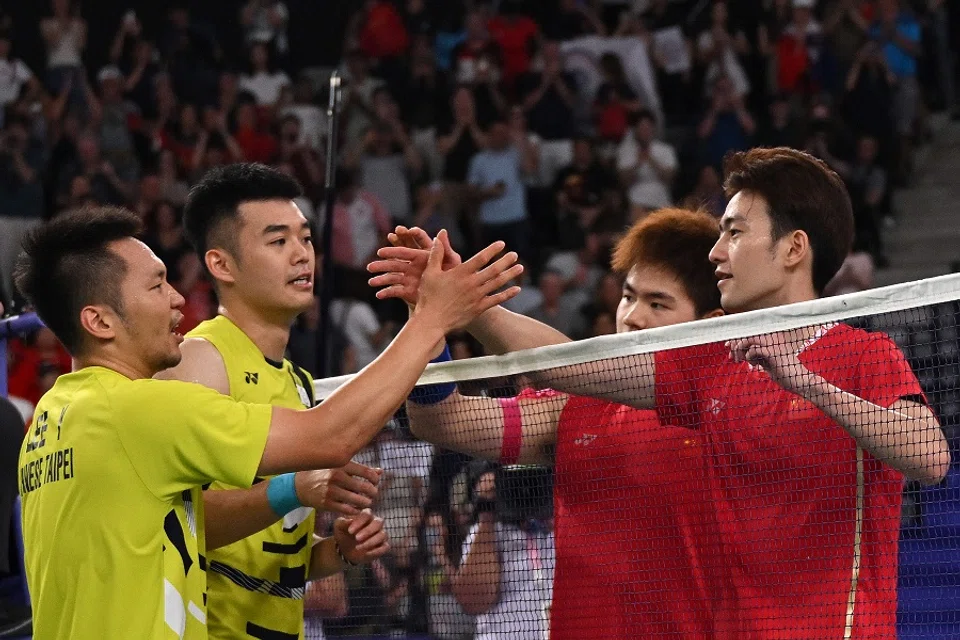
“He could be a celebrity.”
“Or a ‘little fresh meat’ (小鲜肉, a Chinese internet buzzword to describe a handsome young man).”
“He could star in an idol drama.”
The badminton men’s doubles teams from both sides of the Taiwan Strait faced off in the Olympic finals, with the Taiwanese team competing under the name “Chinese Taipei” winning the gold medal. The arena exploded with emotion as the island was “seen” on the international stage once again.
Pride of the Taiwanese or the Chinese?
Chinese badminton player Wang Chang’s good looks became gossip fodder for Taiwanese netizens on social media. Some said that he looks like Taiwanese actor Joe Cheng (郑元畅), while others thought that he is a doppelganger of mainland Chinese actor Hans Zhang (张翰). But what piqued netizens’ interest was how Wang could wear a smile on his face regardless of the game outcome.
Wang told mainland Chinese media, “There are different kinds of smiles, including a genuine smile, a bitter smile and a mocking smile. To maintain a positive mindset, there’s no use for crying — I can only smile.”
His amiable style of competing won the praise of Taiwanese netizens, who commented that he is “handsome and also not a sore loser”. Some Taiwanese badminton fans even cried, “Bring Wang Chang over as soon as possible so I can comfort him.”
In fact, athletes on both sides of the Taiwan Strait have great relationships.
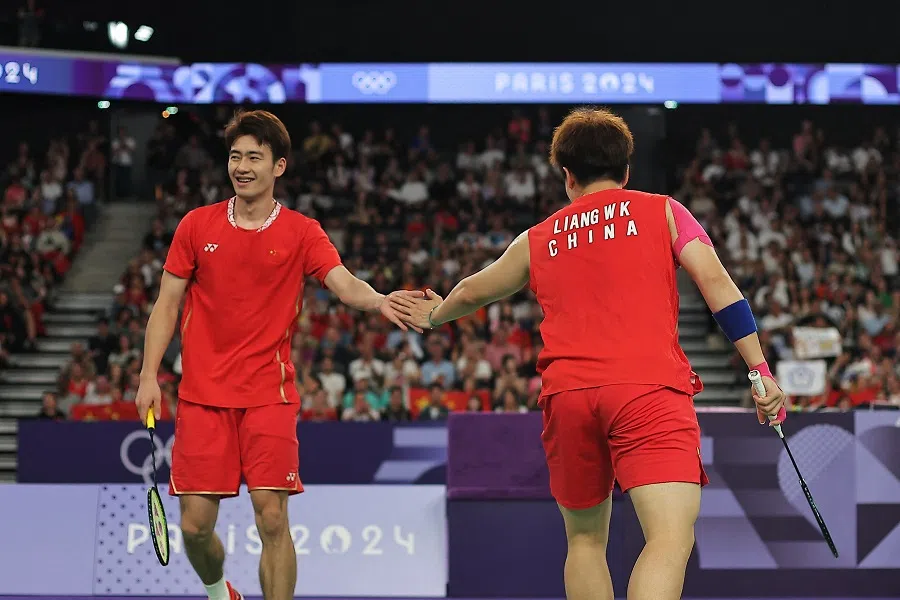
Due to the unique nature of cross-strait relations, when athletes from both sides compete on the international stage, the outside world places heavy political significance on their victories and losses.
Should the gold medal won by Taiwan’s Wang Chi-lin and Lee Yang be seen as the “pride of the Taiwanese” or the “pride of the Chinese”? Kuomintang legislator and National Tsing Hua University Associate Professor Weng Hsiao-ling caused a stir when he commented that this was the “pride of the Chinese”.
The controversy only subsided after she backtracked and clarified that this victory is both the light of Taiwan and the pride of the Chinese people and that she defines “Chinese” in the broadest sense of the word and not as a national identity.
In an environment where anything between both sides of the Taiwan Strait can be politicised, seemingly trivial and meaningless comments such as “Wang Chang is very handsome” suddenly gain significance.
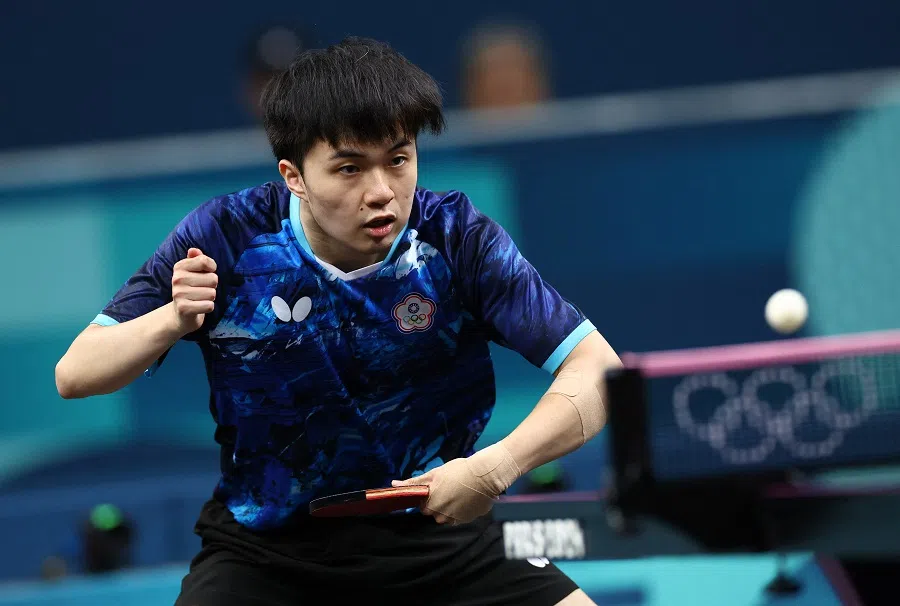
Similarly, when some mainland Chinese netizens saw that the men’s table tennis team had lost and their star player Lin Yun-ju had failed to win a medal, they remarked, “Reunification with Taiwan is urgent. Look at how good of a kid Lin is, yet he didn’t win any medals at the Olympics.”
At first glance, the comment sounds ludicrous. But upon closer examination, it more so sympathised that Lin missed out on a medal despite his exceptional skills, instead of wanting to take advantage of Taiwan.
Friends on the playing field
In fact, athletes on both sides of the Taiwan Strait have great relationships.
When Lin and Chinese table tennis player Fan Zhendong competed in Singapore in March this year, the pair even attended American singer Taylor Swift’s concert together. After the event, a video of Fan enjoying himself at the concert emerged, with a glimpse of Lin in the background.
Fan later wrote on Weibo: “I exchanged a friendship bracelet for fellow Swiftie Lin Yun-ju’s cameo.” The pair are clearly on good terms.
This friendship quickly won Lin many fans in the mainland. At the same time, Fan also won the table tennis men’s singles gold medal at the Paris Olympics and became yet another mainland Chinese table tennis player after Ma Long to achieve a career Grand Slam — a remarkable feat that also won cheers from Taiwanese netizens. Lin and female Taiwanese table tennis player Cheng I-ching had previously visited the mainland for a short training session.
When Taiwan badminton ace Tai Tzu-ying lost to her friend Ratchanok Intanon from Thailand and faced an early exit in the group stage of what could be her final Olympic appearance, notable mainland Chinese badminton player Chen Yufei comforted her on social media...
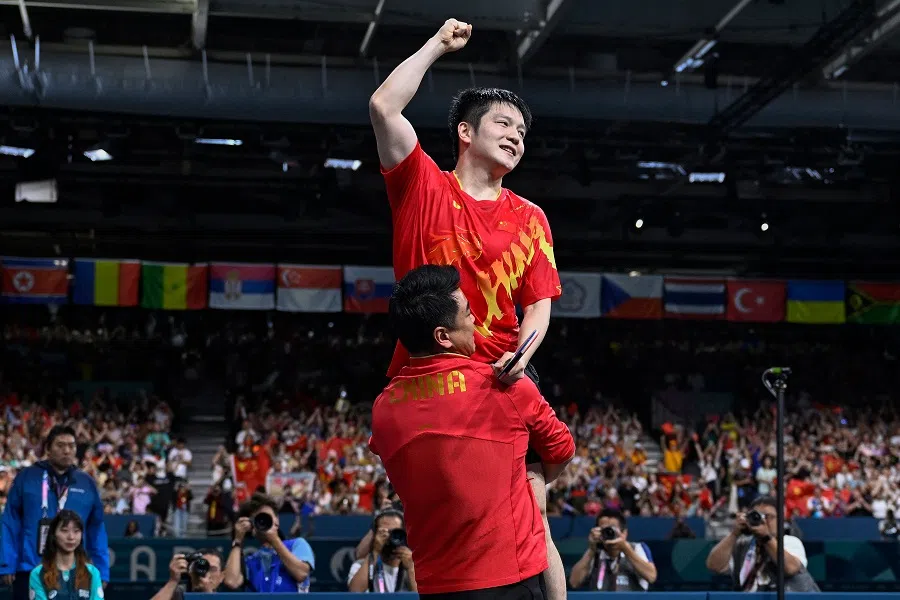
When Taiwan badminton ace Tai Tzu-ying lost to her friend Ratchanok Intanon from Thailand and faced an early exit in the group stage of what could be her final Olympic appearance, notable mainland Chinese badminton player Chen Yufei comforted her on social media, saying: “I’ll say it again: you’re really amazing.”
When mainland Chinese gymnast Zhang Boheng and Taiwanese gymnast Tang Chia-hung both won the bronze medal in the men’s horizontal bar event, media cameras captured Zhang smiling and chatting with Tang during the awards ceremony, and even giving a thumbs-up to Tang when he received the medal — a move that had Taiwanese netizens praising “so adorable”.
Despite leading against mainland Chinese shuttler He Bingjiao at the badminton semi-finals, Spanish shuttler Carolina Marin broke down in tears as she was forced to withdraw after seriously injuring her knee. When He stood on the podium, she showed a badge of the Spanish flag to the cameras as a tribute to Marin, a heartwarming gesture that earned her applause on Taiwanese social media.
Overcoming political barriers
When athletes on both sides of the Taiwan Strait stand on the field, they simply focus on the task at hand with a clear goal in mind — to defeat their opponents and to surpass themselves. Overthinking could cost them victory. Indeed, all political connotations are given or even imposed by outsiders. Wang’s smile, as well as the camaraderie between Fan and Lin and between Tai and Chen, are all pure interactions and displays among athletes.
Positivity and negativity can both be found when we look at cross-strait relations through the lens of the Olympics. There are divisions at the political level, but the athletes are friendly with one another.
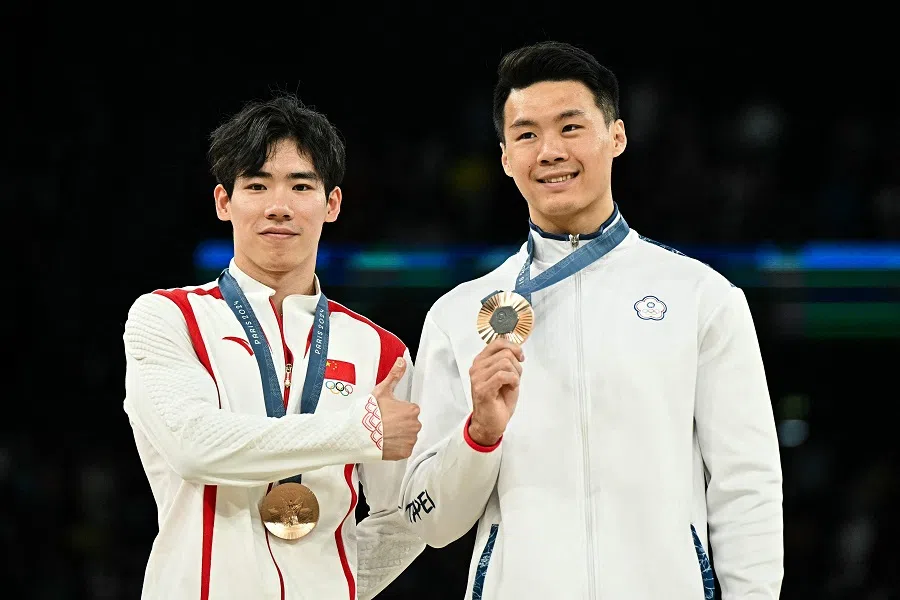
Taiwanese netizens also seemed more supportive of He Bingjiao’s warm gesture compared with the mainland’s men’s 100m freestyle “flying fish” Pan Zhanle’s aggressive response to the West’s doubts about the mainland swim team.
Could this inspire the mainland’s United Front Work Department in terms of winning the hearts of the Taiwanese people? While using hard power to keep people quiet can be effective, some regions particularly appreciate soft power that is gentler and more refined.
Positivity and negativity can both be found when we look at cross-strait relations through the lens of the Olympics. There are divisions at the political level, but the athletes are friendly with one another. This also shows that no matter how bad cross-strait relations get, people-to-people exchanges should not be disrupted.
From the era of the “three no’s” — no contact, no negotiation and no compromise — when cross-strait relations were strained and subjected to laws that prevented interactions, to the present where young athletes engage in warm interactions with one another, cross-strait relations have actually taken a big step forward.
... international sporting events could become an opportunity to provide more education and psychological support to people on both sides of the Taiwan strait, gradually bridging the gap between them.
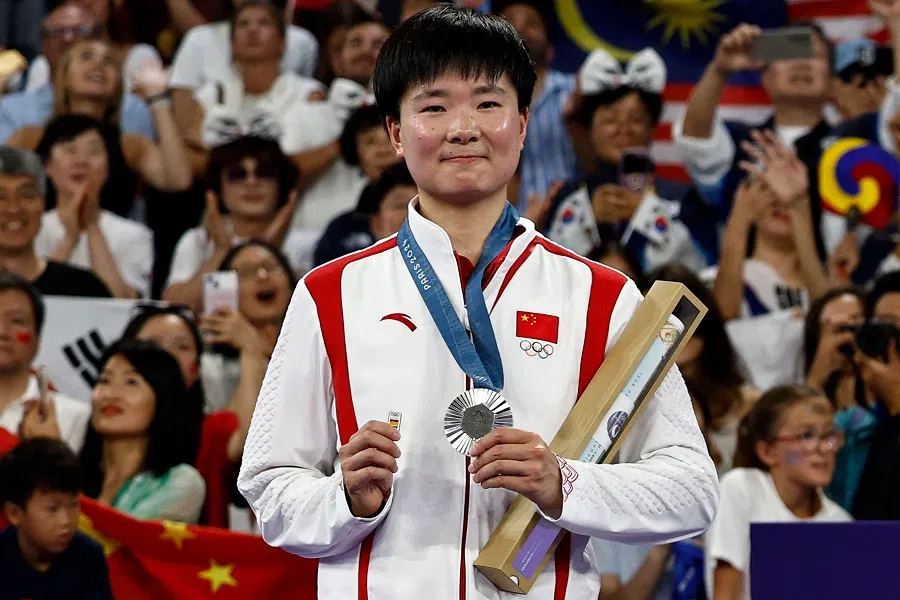
Political barriers are most difficult to overcome — international sporting events could become an opportunity to provide more education and psychological support to people on both sides of the Taiwan strait, gradually bridging the gap between them.
This includes allowing the mainland to watch the entire live broadcast of the “cross-strait showdown” to witness the genuine reactions of Taiwanese spectators and the efforts and interactions of athletes from both sides, which would help foster a deeper emotional connection between people on both sides of the Taiwan Strait.
Even if the Chinese Taipei team won and the Chinese Taipei Olympic flag is raised and one hears a version of the island’s flag anthem, this is but a true reflection of the reality of international politics. As the stronger party between the both sides, the mainland should have its confidence.
Will that be possible in four years’ time at the Los Angeles Olympics?
This article was first published in Lianhe Zaobao as “从台湾人赞王昶很帅看两岸关系”.





![[Big read] When the Arctic opens, what happens to Singapore?](https://cassette.sphdigital.com.sg/image/thinkchina/da65edebca34645c711c55e83e9877109b3c53847ebb1305573974651df1d13a)